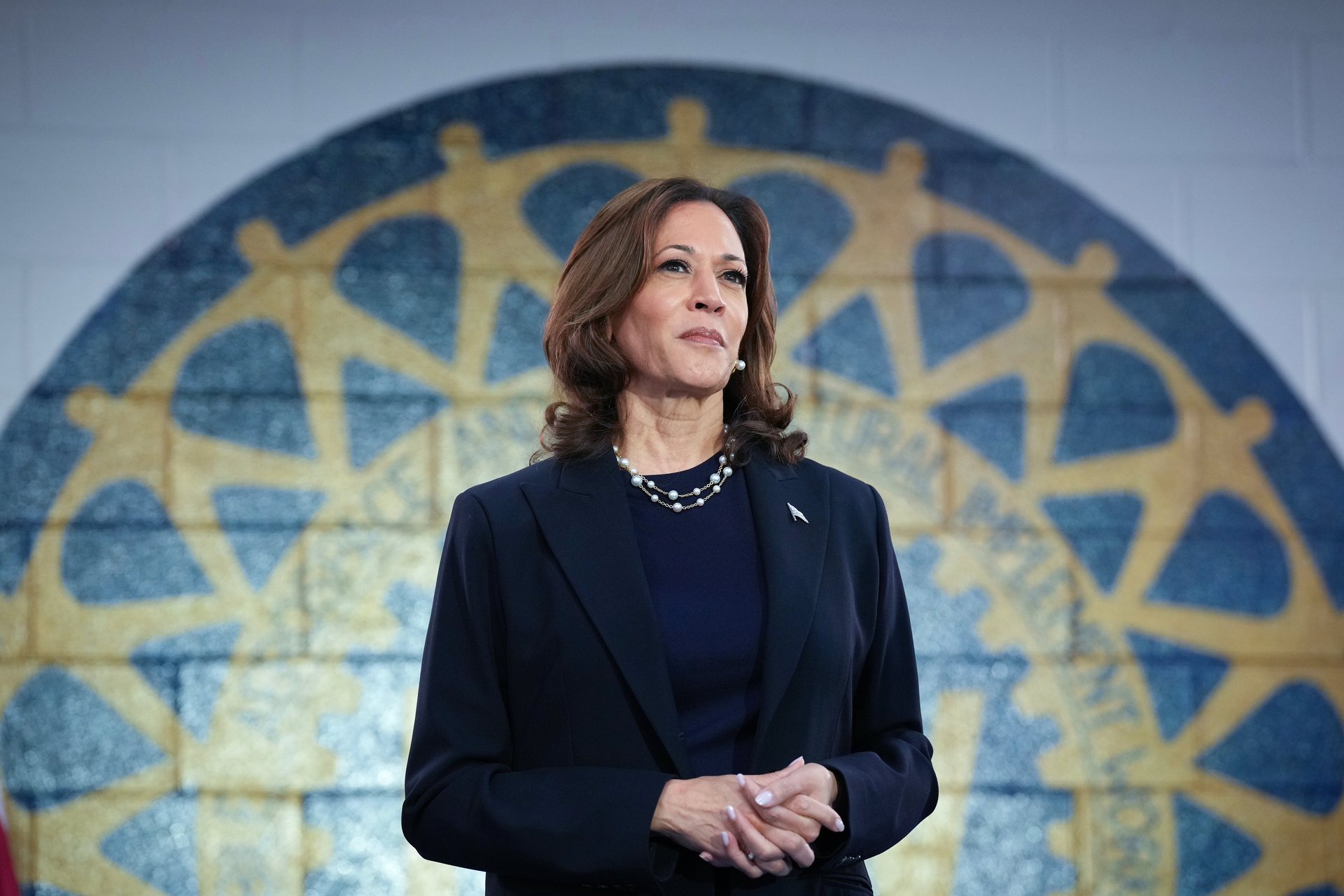Kamala Harris' plan to lower grocery bills includes a ban on corporate 'price gouging'
The Democratic presidential candidate is expected to lay out her economic agenda Friday

Vice President Kamala Harris will call for a federal ban on food and grocery price gouging on Friday.
Suggested Reading
Within her first 100 days in office, the Democratic presidential candidate will push for the first-ever federal ban on “corporate price gouging” by food companies to prevent them from “unfairly jacking up prices on consumers,” her campaign said Wednesday. Harris also wants to provide the Federal Trade Commission (FTC) and state attorneys general with the authority to impose stiff penalties on corporations that violate such a ban.
Related Content
The push comes as inflation continues to stay at the forefront of many Americans’ minds — and on their grocery bills. In June, 80% of respondents in an Intuit Credit Karma survey said the grocery store is where they have seen the most noticeable cost increases, compared to 51% when buying gasoline, 31% with their utility bills, and 27% each for both housing and dining out.
Grocery prices increased by roughly 25% between 2019 and 2023, outpacing the rise in consumer goods, according to the U.S. Department of Agriculture. Although prices are still high and steadily growing, the pace of those increases has slowed down.
On Wednesday, the Bureau of Labor Statistics reported that food at home prices increased 1.1% year-over-year in July, marking the ninth straight month of growth below 2%. A key outlier is the price of eggs, which increased 5.5% compared to a month earlier because of low supply caused by bird flu outbreaks, among other factors.
Harris’s opponent, former president Donald Trump, has blamed the current administration for the U.S.’s high inflation and pricy groceries throughout his candidacy, citing President Joe Biden’s spending programs. Experts have argued that most of the blame comes from the economy’s struggle to recover from the pandemic and the the effects of the Russia-Ukraine war, according to ABC News.
Lina Khan, the FTC’s chair, earlier this month said she would push for a probe into why grocery prices have surged, saying that an inquiry would “shed light” on why prices and profits at grocery chains “remain so high even as costs appear to have come down.” In March, the FTC found that the three biggest grocery chains – Amazon, Kroger, and Walmart – raised food prices and gained a hefty profit due to pandemic-led supply chain snarls.
Harris intends to call out the highly consolidated meat industry, which is mostly controlled by just a handful of companies with immense power over their growers. The Department of Agriculture in March updated a century-old law that prohibits meatpackers from retaliating against growers who explore deals with competitors.
“For prices to be fair, consumers need to have the freedom to choose between competing products,” the campaign said in a statement.
The Democratic nominee would also direct her administration to scrutinize mergers between large food companies. Led by Khan, the FTC has been aggressive in its pursuit of antitrust enforcement against big mergers, including Kroger’s $25 billion bid to buy Albertsons, which has been opposed by the agency and several states.
Major Democratic donors have called on Harris to fire Khan should she beat out Trump in November, arguing that her stance on antitrust is too aggressive and harming businesses. The FTC has pursued action against Microsoft’s $69 billion deal with Activision Blizzard and recently reached a deal with the Justice Department to carry out investigations into Microsoft, OpenAI, and chipmaker Nvidia.
